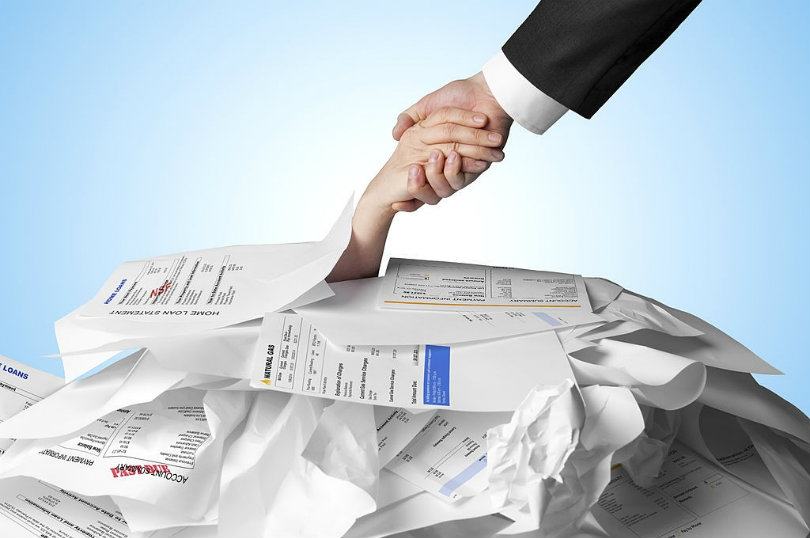In a new article, we will look at how to reduce financial dependence on work. For many people, the two main sources of stress and emotional distress in life are their financial situation and work. And these two areas are usually closely related. Often people to get rid of this stress abuse entertainment, status items and other ways to spend money frivolously. At the same time, concern for the future does not go away.
The way out of this vicious circle is to learn to control your financial situation so that losing your job does not mean the collapse of your entire life.
We have collected for you 6 ways to reduce your financial dependence on your work.
1. Get rid of bad habits
Alcohol, smoking, shopping, unhealthy expensive food… Most often, these habits are simply the result of background stress. It should be reduced, not silenced by actions that spoil your health and worsen your problems. After all, in addition, you get dissatisfaction with yourself and bad health. And plus, you spend a decent amount of money on it a month. Just being aware of these facts often helps you stop in time and not fall for the next trigger that triggers a bad habit.
2. Turn your bad habits into something constructive
Of course, you will not be able to just give up all the “joys” in life and live happily. After all, every bad habit covered some important need. Your task is to find out which one. And come up with a healthy alternative to satisfy it.
For example, you went to the bar every night after work to have a beer with your colleagues. As a result, you spent a decent amount of money on alcohol and unhealthy snacks and didn’t feel very well. This habit is essentially your need for social contact. You needed a social group with which you could have a good time, discuss issues and problems, and share your impressions. This need can be closed elsewhere; meetings of business parties in your industry, book clubs, groups for learning foreign languages, organizing themed dinners at your home. There are lots of options.
Find out what hole in your life each of your bad habits closed. Ask yourself how you can fill them out in a more meaningful way. Most often, the alternative method requires either less investment, or comparable spending with bad habits. And the difference in benefits is enormous.
3. Talk to your boss about real-world development options
If you don’t have a good reputation in the eyes of your boss, it’s time to think about how to fix it. Come on time every day, submit tasks on time, be proactive, and offer your options for solving problems if they seem more effective to you. When you are sure that you are giving 100%, talk to your boss. Don’t ask for a raise, but ask what you need to do to get it. Indicate how much you want to earn and in which directions to develop. Create a time-bound plan with your boss to achieve this goal.
If you don’t have such a development opportunity in your company, you may want to consider changing your job.
4. Don’t waste “extra” money
A sudden bonus, a monetary gift from relatives, a tax deduction, or just money that you didn’t have time to spend in a month, this is always a big temptation. I want to spend it on entertainment or on some not very necessary, but status thing.
But when you spend that money on something impulsive, that money goes away very quickly. And the pleasure you get just as quickly evaporates, and you go back to where you started.
So when you have extra money, ask yourself, “How can I use this money to move my life forward a little?” Maybe it will just be adding to your financial safety net. Or pay for courses that will increase your cost in the labor market. Or maybe postponing the trip. It all depends on your situation, values and goals.
5. Check every dollar you spend
The thing that often leads people to financial difficulties and makes them live “paycheck to paycheck” is the loss of control over their spending.
Before any unnecessary expenditure (that is, that is not related to your housing, loans, food, travel, and communication), you should ask yourself the following questions:
- Are these expenses really necessary?
- Does it is something really important in my life?
- If this purchase is necessary, is there any other way to achieve the goal without spending money? Can I borrow this item from someone? Or get most of this experience without spending money? Can I do it myself? Do I have something else that already performs this function?
If you answered “no” to the first two questions and “yes” to the rest, then this purchase deserves a second review. The standard strategy for such purchases is to postpone them for at least a month.
The home accounting program will help you control your expenses more effectively, even the smallest ones.
6. Create an emergency fund
It is best to keep a financial safety net in a separate savings account. Do not use a credit card for this purpose. The easiest way to create an emergency Fund is to regularly make small deposits by setting up an automatic transfer after the salary is received. Although many experts advise you to speed up the first few months and deposit as much money as you can to feel confident and calm. And then you can switch to the format of small monthly payments.
What items would you add to this list? How can I reduce my financial dependence on work?








Leave a Comment